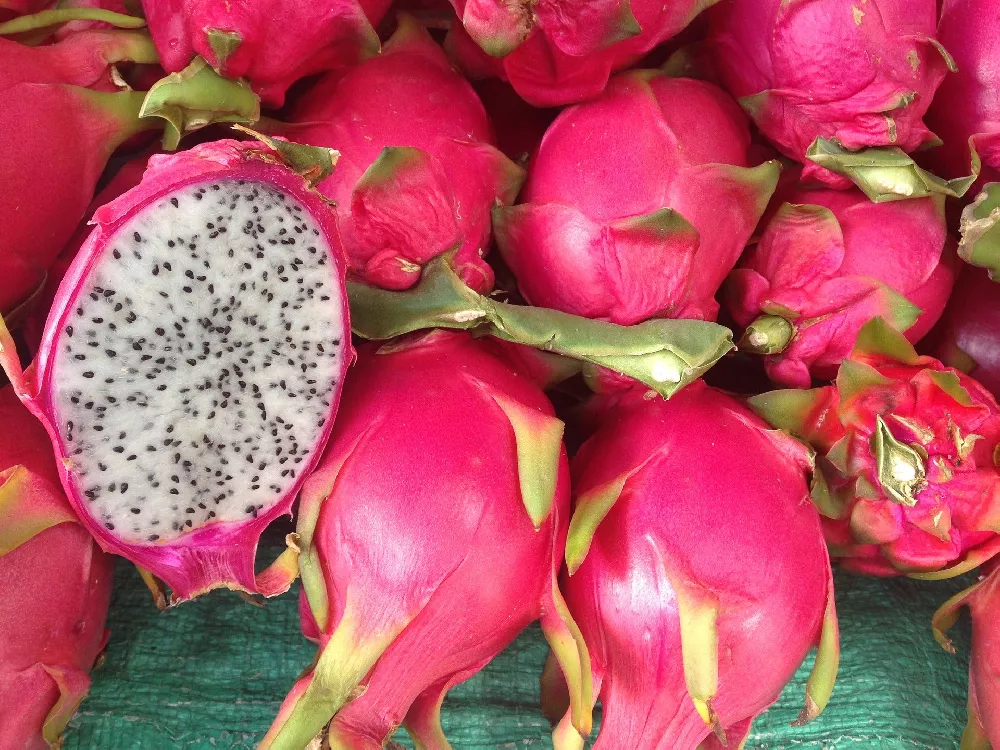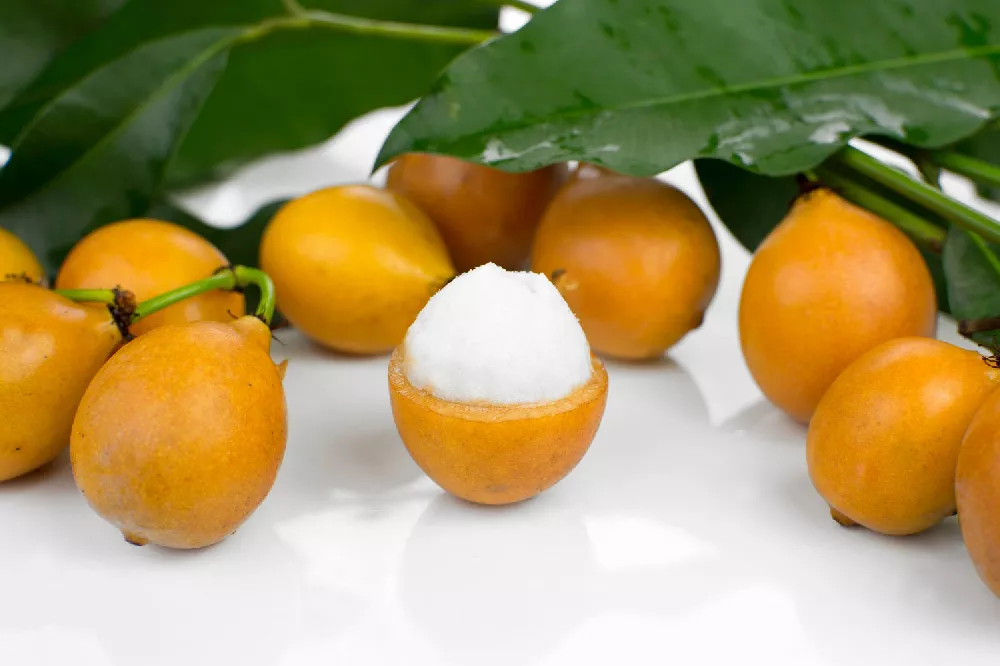- Home >
- Edible Plants >
- Dragon Fruit Cactus
Dragon Fruit Cactus for Sale - Buying & Growing Guide
- Ships in 1-2 days
- 1-Year Warranty Eligible
- Pots or accessories are not included unless specified in the product options.
Shipping Details:
Once your order is shipped, you’ll receive an email with a tracking number and estimated delivery date. Most orders ship immediately, but some items are seasonal and may only ship in spring or fall. These products are noted on the website.
The dragon fruit cactus (hylocereus undatus) is known for its bright pink-colored fruit, also called pitahaya. It features fragrant white flowers and a vining growth pattern. The species thrives in tropical climates and is native to South America, Mexico, and parts of Asia.
- This tropical species grows well in warm regions outdoors, but also thrives in homes and greenhouses.
- Dragon fruits are specialty produce and are often found in health food smoothies.
- The fruit is harvested May through June in most climates.
Plant Care
Sunlight

Dragon Fruit Cactus grows best in full sun, 6 or more hours of direct light a day.
Watering
Water roughly every two weeks, allowing soil to dry out between waterings.
Fertilizing

Give light regular feedings with a balanced fertilizer designed for cactuses. Add compost to soil annually.
Planting and Care
Planting instructions
Choose a planting site that receives full sun, as the species is used to hot tropical climates. When you’ve found a great location, dig a hole to the depth of the plant’s root ball and twice as wide. Place the plant in the hole and backfill with soil. Tamp down lightly and water the site thoroughly. Provide a support pole to allow your dragon fruit cactus to climb and vine. If growing in a container, use a sandy cactus potting mix.
Watering and nutrients
Like other tropical cacti, the dragon fruit cactus prefers a dry period before being watered. Watering should be performed every 10 to 14 days. A dripper system can be useful for maintaining the species, especially for greenhouse-grown specimens. For many tropical cacti, including H. undatus, a common cause of disease and death is overwatering. Regular light applications of slow-release, cactus-specific fertilizer is recommended. Despite the fact that dragon fruit plants are light feeders, plants that are not fertilized may be slow-growing and will remain dormant longer.
Pollination
Dragon fruit cacti are considered self-fertile and will produce a crop when planted alone. However, planting multiple specimens will dramatically increase the size of your crop. Dragon fruit flowers only appear for 24 hours at most, sometimes only lasting overnight. They rely on nocturnal pollinators—such as bats and moths—for successful fruit production, as the flowers fade by morning. The large white blooms can grow to almost 12 inches long and usually appear at the tip of the plant’s foliage.
Pruning
It is imperative to keep a close eye on new growth when caring for more than one dragon fruit cactus. Clusters and entangled branches may prevent flowers from fully expanding. To ensure an abundance of fruit, keep all growth free of each other. The branches should be kept cleared off of the ground, as this can prevent fruits from forming. Removed sections of your dragon fruit cactus can be rooted and propagated into a new plant.
Pests, diseases, and animals
Sap-sucking pests—such as aphids or mealybugs—can become a nuisance for your dragon fruit cacti. A strong water stream is usually enough to rid your plants of these pests, but you may need to remove infected portions of the plant if the insects get out of control. Anthracnose is a fungal disease that can attack dragon fruit cacti, causing disformed stems and fruit. Practice proper pruning procedures to avoid anthracnose and related diseases, although a copper fungicide can be used to eliminate existing problems.
Harvesting
Dragon fruits are ready to harvest around two months after successful pollination of a flower. You can determine that the fruit is ripe when the skin turns from yellowish-green to a bright pink. The ‘wings’ should be brown and dried out when the fruit is ready for harvest. After harvesting, the fruit can be stored for about two weeks in the refrigerator. The seeds can be gathered and sown to grow more dragon fruit cacti.
FAQs
How big do Dragon Fruit Cactuses grow?
The dragon fruit cactus grows to approximately 10 feet tall. The wide, branching canopy of the cactus can reach widths of five to 10 feet. Their twisted crossing limbs will create a barrier if not properly maintained and trimmed back. The species has a productive lifespan of 20 to 30 years, but it can live much longer. The plants take two to three years to bear their first crop of fruit. The plant has a fast growth rate, especially during the heat of summer.
Should dragon fruit be refrigerated?
Once you cut into a dragon fruit, it is ready to be eaten. You can save your fruit by storing it in a container in the fridge for a day. If you would like to preserve uncut fruit, they will last even longer under refrigeration. This helps slow the ripening process of the fruit to give it a longer shelf life. Cut fruit should never be placed on the counter as it will spoil.
Why are Dragon Fruits so expensive?
The premium cost of the dragon fruit is due to its high demand and low supply. Dragon fruit is packed high in health benefits which makes it highly sought out. Due to the fact that this special fruit is usually imported, the cost of one dragon fruit can be anywhere from $6 to $10. The dragon fruit cacti also takes a few years to bear any fruit, adding to its production-barrier and scarcity. Growing your own plants is an excellent way to enjoy this rare fruit at a more reasonable cost.
Can you eat it raw?
Many people say dragon fruit has a mild flavor when compared to most other fruits. You can blend it in a smoothie, cut it up and eat it by itself, or even throw it on the grill for a variety of usages. When selecting a dragon fruit, be sure it is bright pink to red, and its green leaves begin to wilt back. Despite its tough exterior, dragon fruit is easy to cut. Slice and enjoy the fruit’s flesh, leaving the rind behind. Some people choose to cut it in half and spoon out the pulp.
Compare Similar Products
Customer Reviews
 KS from Texas
KS from TexasWonderful! My plants arrived quickly and very healthy. Thank you.










